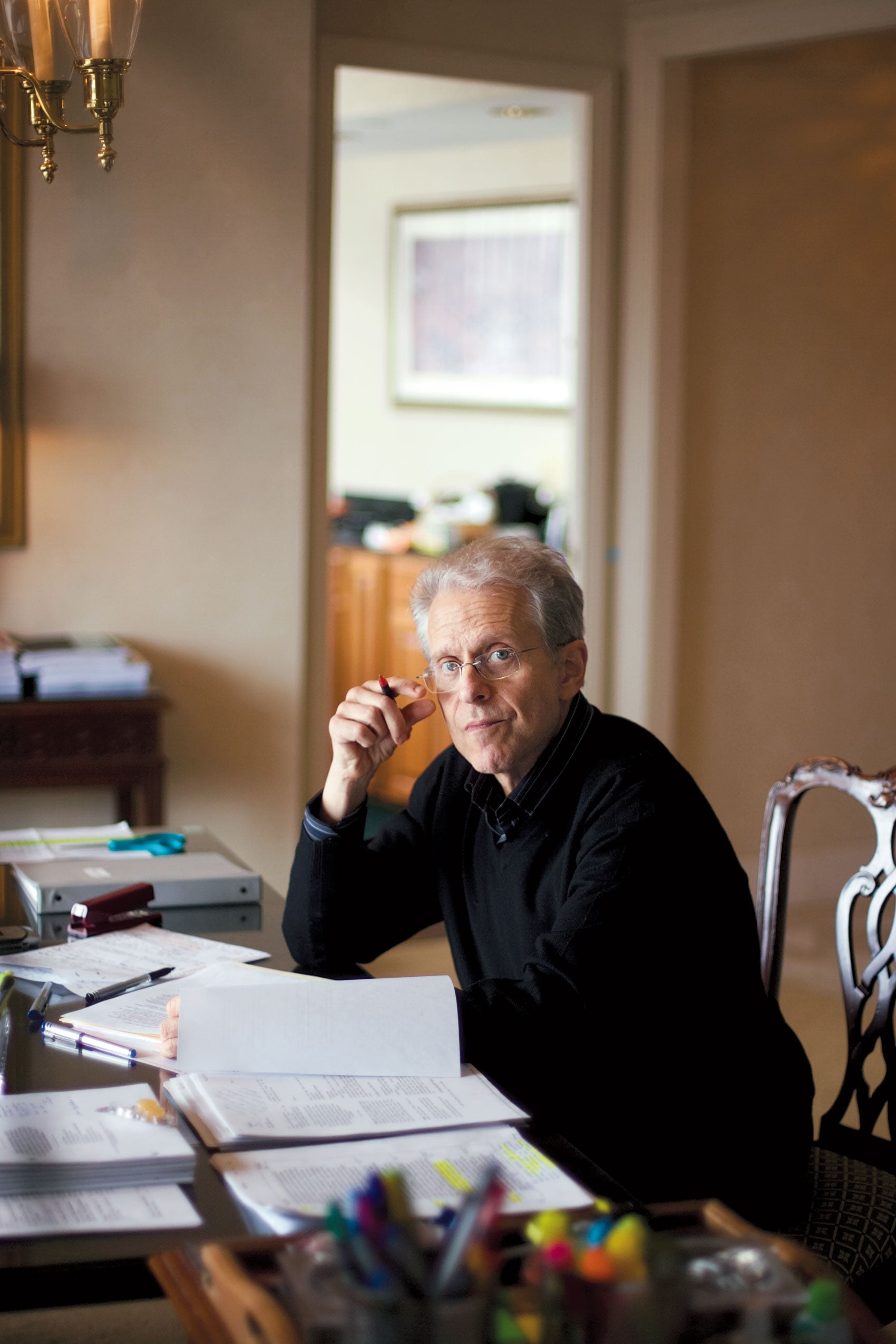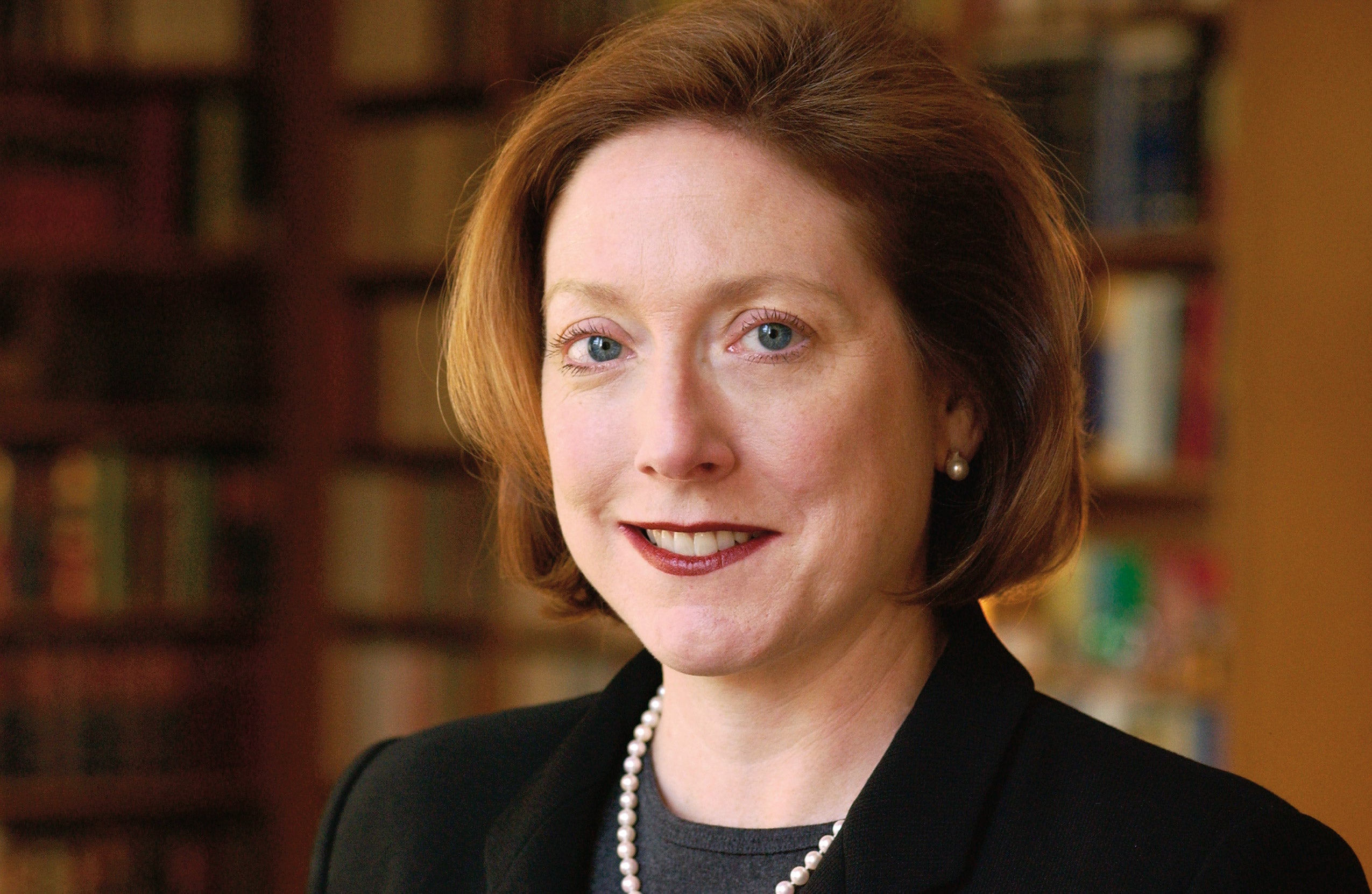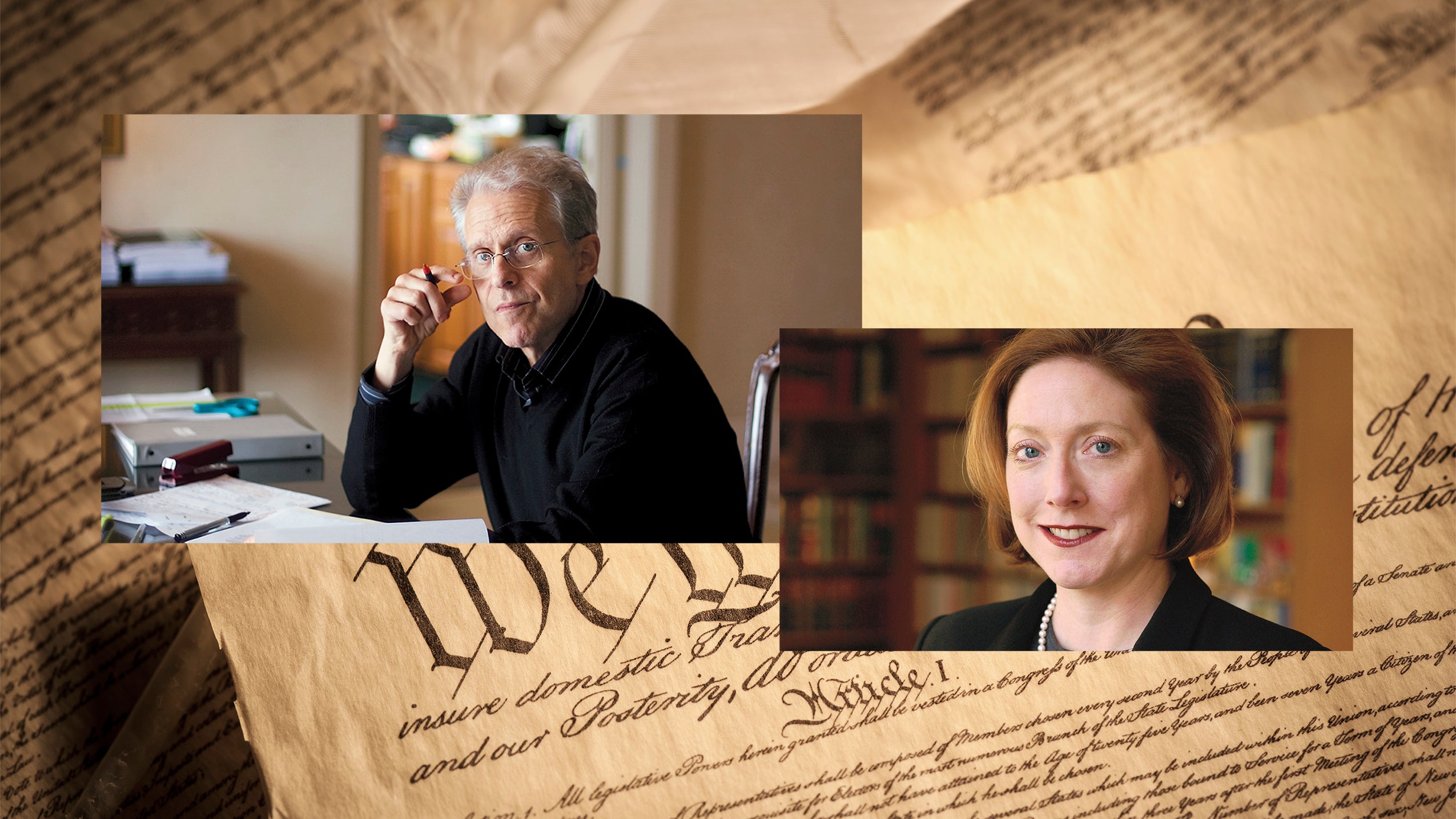Laurence H. Tribe ’66 and Kathleen Sullivan ’81 have teamed up on more than a dozen cases in the nearly four decades since she was a student in his constitutional law class.
Now, for the first time, Tribe, the Carl M. Loeb University Professor and Professor of Constitutional Law at Harvard, and his former student Sullivan, the former Harvard Law School professor and Stanford Law School dean, will face off as adversaries.
The occasion: a reargument of the landmark 1803 case Marbury v. Madison that will take place as part of the Harvard Law School bicentennial celebration on Oct. 27.
“This will definitely be a role reversal for both of us,” Sullivan said.
Professor Michael Klarman came up with the idea of rearguing a case decided at the time of the school’s founding in 1817. Dean John Manning ’85 and Professor Richard Lazarus ’79, faculty chair of the bicentennial planning committee, looked at cases decided around that time, but none fit the bill.
They ultimately settled on Marbury v. Madison, which established the federal judiciary’s power to strike down congressional acts as unconstitutional. Next, they came up with a “dream team” of potential advocates, and their top two—Tribe and Sullivan—said yes.

“We loved the combination not only because they are two leading Supreme Court advocates and constitutional law scholars, but Sullivan of course worked as Tribe’s research assistant while a student at Harvard Law School,” Lazarus said.
Sullivan said the experience of being in Tribe’s constitutional law class during her 2L year in 1979 changed her life. Tribe asked her to work on a Supreme Court brief the following year, the start of a collaboration that has spanned numerous cases in the years since.
“Larry Tribe is my beloved teacher, mentor, colleague, and friend, so it’s a great joy to do this historical re-enactment with him and try to show in a small way the enormous amount that he taught me,” said Sullivan, who is now a partner at Quinn Emanuel Urquhart & Sullivan in New York City.
Tribe said: “Kathleen is not just my former student, colleague, and frequent co-counsel but a superb lawyer and scholar, a dazzling advocate, and among my closest friends. That said, because we’re both fierce competitors, I can’t imagine either of us pulling our punches in this replay of the great saga that was Marbury v. Madison.”
They took on their roles with relish after Tribe picked Marbury as his client and Sullivan got assigned Madison. They exchanged emails in historically appropriate voices for the case that ensued when President Thomas Jefferson directed Secretary of State James Madison not to deliver commissions made late in the tenure of his predecessor, President John Adams. The plaintiffs sued Madison for failing to deliver the commissions.
“My dear Mr. Madison,” Tribe wrote in an email he signed “Wm. Marbury, Esq.” “Now that you are confirmed as Secretary of State, I trust you will make all needful arrangements to secure expeditious delivery of my judicial commission as signed and sealed by the outgoing Adams administration. Surely you would not listen to the importuning of the lawless Pres. Jefferson that my commission be withheld.”

Sullivan replied in an email she signed “J. Madison”: “I am in receipt of your request that you be delivered a judicial commission to which you have no current entitlement. Surely you must realize how irksome and delicate it would be for you to endeavour to force the hand of our new Executive in a matter so political in nature.”
Sullivan said she tried organizing a Marbury v. Madison reargument in 2001 while dean at Stanford as part of a celebration of the school’s moot court and the 50th reunion of Chief Justice William Rehnquist and Justice Sandra Day O’Connor.
But Rehnquist balked at the idea. “The Chief said to me, ‘Marbury is a terrible case. It should have been dismissed for lack of jurisdiction,’” Sullivan said. (Rehnquist instead suggested a reargument of the Steel Seizure case, which he and Justice O’Connor presided over at Stanford’s 2002 Reunion).
Sullivan said preparing for the case presents certain “back to the future” problems since it requires preparing in contemporary arguments and simultaneous time travel to the original position. There is also the challenge of trying to say something new about a case which “forests have been felled writing about,” as Tribe noted in a review about one book on the case that he said “made the rule of law a living part of the American legacy.”
Hearing the case will be an all-star quartet of alumni who serve on federal appeals courts: Merrick Garland ’77, chief judge of the U.S. Court of Appeals for the District of Columbia Circuit, will preside. He will be joined by Judge Joseph Greenaway Jr. ’81 of the U.S. Court of Appeals for the 3rd Circuit, Judge Jane Kelly ’91 of the U.S. Court of Appeals for the 8th Circuit, and Judge Patricia Millett ’88, who also serves on the D.C. Circuit.
“This should be almost as much fun to witness as I know it will be for each of us to engage in,” Tribe said.
If you can’t be on campus for the HLS in the World bicentennial summit you can still watch the Marbury v. Madison reargument live at 200.hls.harvard.edu/mvm beginning at 4 p.m. on October 27, 2017.
You can watch selected additional sessions live by visiting 200.hls.harvard.edu/events/hls-in-the-world/watch-session-live-streams. Links to all sessions being streamed live will be available prior to the event.
